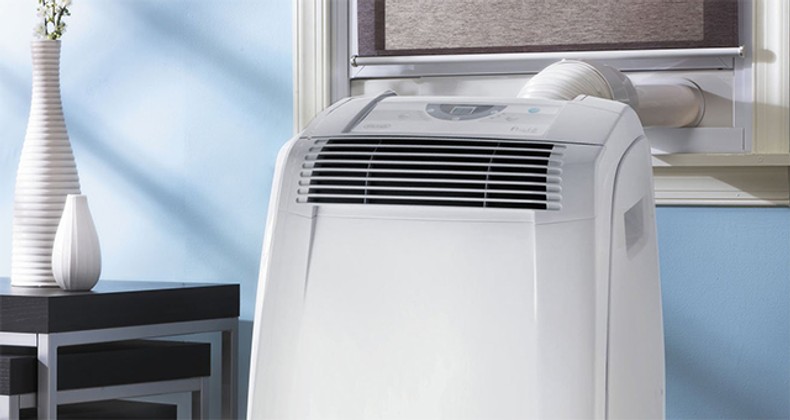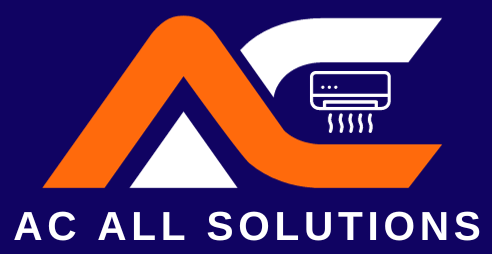If your Delonghi portable air conditioner is not evaporating water, check the condensate drain for clogs and ensure the unit is level. Portable air conditioners, like the Delonghi model, provide a convenient way to cool specific areas in your home.
When they fail to evaporate water, it can lead to leakage and reduced cooling efficiency. To address this issue, it’s essential to start by inspecting the condensate drain for any obstructions that may be preventing water from being evaporated.
Additionally, ensuring that the unit is placed on a level surface will also aid in proper water evaporation. By troubleshooting these potential causes, you can restore your Delonghi portable air conditioner to its optimal functionality.
Understanding Evaporation Function
Understanding how a portable air conditioner evaporates water is crucial for maintaining its optimal performance. Delonghi portable air conditioners utilize evaporative technology to manage condensation effectively.
This article will explore the basics of how a portable air conditioner evaporates water, the role of evaporative technology in Delonghi AC units, and common reasons for malfunction in water evaporation.
Basics Of How A Portable Air Conditioner Evaporates Water
When warm and humid air is drawn into a portable air conditioner, it passes through a set of cold coils. As the air cools, the moisture in the air condenses into water droplets on the coils.
The evaporator fan then helps to evaporate this condensed water, releasing it back into the air as water vapor. This process effectively removes moisture from the air and provides a cooling effect.
The Role Of Evaporative Technology In Delonghi Ac Units
Delonghi AC units are equipped with advanced evaporative technology that efficiently manages the condensation process.
The combination of a high-quality evaporator fan and well-designed evaporator coils ensures effective evaporation of water, maintaining optimal humidity levels in the room.
Common Reasons For Malfunction In Water Evaporation
- Blockage in the drainage system: A clogged or blocked drainage pipe can hinder the proper flow of water, leading to inefficient evaporation.
- Faulty evaporator fan: If the fan responsible for evaporating the condensed water malfunctions, it can disrupt the evaporation process.
- Low refrigerant levels: Inadequate refrigerant levels can impact the cooling capacity of the coils, affecting the evaporation of water.

Credit: www.sylvane.com
Troubleshooting Delonghi Units
When it comes to troubleshooting Delonghi portable air conditioners, it’s essential to address any issues that may prevent the unit from effectively evaporating water.
A common problem with Delonghi air conditioners is the failure to evaporate water, which can lead to water leakage and reduced cooling efficiency.
If you’re facing this issue, it’s important to perform the necessary checks and follow proper safety precautions to address the problem effectively.
Initial Checks Before Deep Troubleshooting
- Ensure the air conditioner is placed on a level surface to allow proper drainage.
- Inspect the air filter for any clogs or dirt that may obstruct airflow.
- Check the exhaust hose for any kinks or blockages that could impede proper ventilation.
- Verify that the condensate drain is not clogged and is allowing water to flow freely.
Tools And Safety Precautions For Solving The Issue
Before delving into troubleshooting a Delonghi air conditioner that is not evaporating water, it’s important to gather the necessary tools and follow safety precautions.
The following tools and safety measures should be considered:
- Set of screwdrivers for disassembling the unit if necessary.
- Protective gloves and eyewear to ensure safety while handling the air conditioner.
- Safe power disconnection to prevent electrical hazards during troubleshooting.
- Clean towels or rags to address any water spillage during the troubleshooting process.
Ventilation Problems Impacting Performance
When it comes to the performance of a Delonghi portable air conditioner, ventilation plays a critical role. Without proper ventilation, the evaporation of water may be hindered, leading to potential issues with the unit’s functionality.
Addressing ventilation problems promptly is crucial to ensuring optimal performance of your Delonghi portable air conditioner.
Issues With Exhaust Hoses And Their Effect On Evaporation
Exhaust hoses are essential components of a portable air conditioner, as they facilitate the removal of hot air from the room. However, if the exhaust hoses are kinked, obstructed, or improperly positioned, it can lead to inefficient air circulation.
Consequently, this can impact the evaporation of water within the unit, causing excess condensation and potential water leakage issues.
Importance Of Proper Air Flow And Room Temperature
Proper air flow and room temperature are crucial factors in ensuring the effective functioning of a portable air conditioner. Inadequate air flow within the room can impede the evaporation process, leading to the accumulation of water.
Moreover, maintaining the optimal temperature in the room is essential for promoting efficient evaporation within the unit.
Malfunctioning Delonghi Components
When it comes to cooling your space, a portable air conditioner can be a convenient and effective solution. However, even the most well-designed appliances can experience malfunctioning components, leading to reduced performance.
In the case of Delonghi portable air conditioners, issues with components such as the condenser and evaporator coils can result in the unit not evaporating water properly.
Identifying Faulty Parts Within The Delonghi Air Conditioner
When your Delonghi portable air conditioner is not evaporating water as expected, it’s essential to examine the components to identify any faults.
Two crucial parts to inspect are the condenser and evaporator coils. Here’s a step-by-step guide to examining these components.
Step-by-step Guide To Examine The Condenser And Evaporator Coils
1. Inspect the Condenser Coil
To begin, locate the condenser coil within the unit. Ensure there is no visible damage, such as bends or corrosion, that may impede the flow of refrigerant. Check for any debris or dust accumulation that could restrict the coil’s ability to dissipate heat.
2. Clean the Condenser Coil
If the condenser coil appears dirty, carefully clean it using a soft brush or vacuum attachment to remove dust and debris. Be gentle to avoid causing damage to the delicate fins of the coil.
3. Examine the Evaporator Coil
Next, inspect the evaporator coil for any signs of dirt or debris accumulation. A dirty evaporator coil can hinder the heat exchange process, leading to reduced efficiency in evaporating water.
4. Clean the Evaporator Coil
If the evaporator coil is dirty, use a mild detergent and warm water solution to gently clean the coil. Avoid using harsh chemicals or abrasive tools that could harm the coil’s fins.
Regularly inspecting and maintaining these components is crucial to ensure that your Delonghi portable air conditioner operates at peak performance, effectively evaporating water and providing optimal cooling comfort.
Diy Maintenance Tips
Regular maintenance is essential for ensuring optimal functionality of your Delonghi portable air conditioner. By following a few simple DIY maintenance tips, you can keep your unit running efficiently and prevent issues such as water not evaporating.
Here are some important maintenance routines you should perform regularly to keep your portable air conditioner in top condition:
Regular Cleaning And Maintenance Routines For Optimal Functionality
Cleaning and maintaining your portable air conditioner on a regular basis is crucial to ensure that it functions efficiently. Here are some maintenance tasks you should perform periodically:
- Cleaning the air filters: Remove the air filters and wash them in warm, soapy water. Allow them to dry completely before reinstalling them.
- Cleaning the condenser coils: Use a soft brush or vacuum cleaner to remove dust and dirt from the condenser coils.
- Inspecting the seals and gaskets: Check for any signs of wear or damage and replace them if necessary to prevent air leakage.
- Inspecting the power cord and plug: Ensure that the power cord and plug are in good condition and free from damage.
How To Unclog And Clean The Drain Line Yourself
If the drain line of your portable air conditioner becomes clogged, it can lead to water not evaporating properly. Here’s a simple guide to unclog and clean the drain line yourself:
- Locate the drain line: The drain line is usually located at the back of the unit. Look for a small tube or pipe that extends from the bottom of the air conditioner.
- Unclogging the drain line: Use a small brush or pipe cleaner to gently remove any debris or dirt that may be clogging the drain line. Ensure that the line is completely clear of obstructions.
- Cleaning the drain pan: Once the drain line is unclogged, clean the drain pan to remove any accumulated dirt and grime.
- Testing the drain line: After cleaning, pour a small amount of water into the drain pan to ensure that it flows freely through the drain line.
When To Contact A Technician
If your Delonghi portable air conditioner is not evaporating water, it can be frustrating and uncomfortable, especially during hot summer days.
While some issues can be resolved with basic troubleshooting, there are situations when it’s necessary to seek professional help. Below are the signs that indicate your problem may require the expertise of a technician.
Signs That Your Issue May Require Professional Help
- Continuous water buildup despite regular maintenance
- Unusual noises or vibrations coming from the air conditioner
- Failure to cool the room effectively
- Persistent leaks or water damage around the unit
When you encounter one or more of these signs, it’s essential to consider reaching out to a Delonghi service technician for assistance. They have the necessary expertise to diagnose and resolve more complex issues effectively.
What To Expect From A Delonghi Service Appointment
When scheduling a service appointment with a Delonghi technician, you can expect professional and thorough assistance to address your air conditioner’s non-evaporating water problem. The technician will:
- Evaluate the condition of the air conditioner and identify the root cause of the non-evaporation issue
- Perform necessary repairs and adjustments to restore the proper functioning of the unit
- Provide guidance on preventative maintenance and usage to avoid future issues
Frequently Asked Questions On Delonghi Portable Air Conditioner Not Evaporating Water
Why Is My Ac Not Evaporating Water?
Your AC may not be evaporating water due to low humidity, dirty evaporator coils, or a malfunctioning drain line. It’s important to have it inspected and maintained by a professional to ensure proper functioning. Regular maintenance can help prevent this issue.
Why Is My Portable Air Conditioner Not Draining Water?
The portable air conditioner may not be draining water due to a clogged drain line or a dirty air filter. Clean the air filter and check the drain line for any obstructions to resolve the issue. Regular maintenance can prevent this problem.
Why Is My Portable Air Conditioner Always Full Of Water?
Your portable air conditioner is always full of water because the unit removes moisture from the air to cool your space. This collected moisture condenses inside the unit and needs to be drained regularly to prevent overflowing. Make sure to empty the water tank or use the continuous drainage option.
Do You Have To Empty Water From Delonghi Portable Air Conditioner?
Yes, Delonghi portable air conditioners require periodic water drainage through the tank or continuous drain system. Regularly emptying the collected water helps maintain efficient performance.
Conclusion
Addressing the issue of a Delonghi portable air conditioner not evaporating water is crucial for optimal performance. The potential causes and troubleshooting tips mentioned in this post can assist in resolving this common concern.
By following the suggested solutions, you can ensure your portable air conditioner operates efficiently and effectively.
